CONSERVATION CORNER
A weekly blog for all things conservation
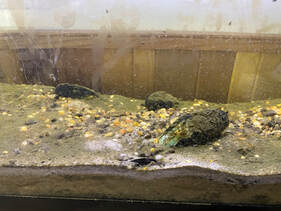 Cole Sutton, Mansfield University Student, BCCD Intern What are mussels? Freshwater bivalves, commonly known as mussels, belong to the order Unionoida and are found on every continent except Antarctica. Bivalve means having two sides or shells. They inhabit lakes, ponds, creeks, and rivers. Mussels’ main food source is algae. They obtain algae by filtering or straining the water; Along with filtering out food they also filter out heavy metals and dirt particles in the water. Nonedible particles are deposited into the ground rendering clearer water. There are approximately 50 species of mussels that reside in Pennsylvania. However, 12 species have already been extirpated, which means that they are no longer found in the state.
0 Comments
 Durability and Sustainability: Portland Limestone Cement Helps Rebuild New St. Pete Pier Source: https://www.greenercement.com/stpetepier Durability and Sustainability: Portland Limestone Cement Helps Rebuild New St. Pete Pier Source: https://www.greenercement.com/stpetepier Patrick Cullen, BCCD, District Engineer I had pleasure to be able to sit in a statewide meeting for Conservation Engineers where we talked about several topics, one of them being a new type of concrete being seen throughout the state and country. Below are some summarizations of the meeting and the topic itself, as far my knowledge takes me. In the past year there has been a big change in the concrete world here in the US. The concrete has changed from a Portland Cement Formula to a new formula, Portland Limestone Cement Formula (it is called a “green” concrete and “sustainable” concrete.) It has been a long time coming. In Europe and Canada, they have been using this concrete for years. So what changed? Kevin Brown- BCCD, Ag Resource Specialist
For a recap on the first article- What is causing the impairment of streams in the state? Ag takes a lot of the blame (75% worth), but is that where the focus should be? In round 1, I wrote about the correlations of population density to impaired streams (82%) and cattle density to impaired streams (53%). People seem to be much more correlated with it. As I was explaining this to a counterpart of mine, she said, “Well the people that I have worked with have attempted to make the connection between tree canopy and impaired streams”. That was a new take on it, and I had to run right back to my office and get working on those numbers. Again, some very interesting numbers came out. Kevin Brown- BCCD, Ag Resource Specialist
Last week’s article from Miranda seemed to be a nice segway into something I have been working on lately. We here at the District focus on clean water- keeping clean water clean, and attempting to take “dirty” water and make it clean before it heads downstream. The first one is easier, usually. We use all tools available to get it done- gutters, diversion ditches, drop boxes, etc.- to take clean water, and divert it around areas that could potentially pollute it. Cleaning the water can sometimes be a bit more complicated than keeping it clean in the first place, but not always. What is Mother Nature’s way for cleaning water? Filtering it, just like we would do. How does she filter it? Soil! Lots of living, breathing, water infiltrating soil. If we take water that is laden with nutrients or sediment, and run it through some really good soil, it comes out the other end- clean. It’s magic. However, that means you have to have some good soil that water can infiltrate and clean it as it goes through it. 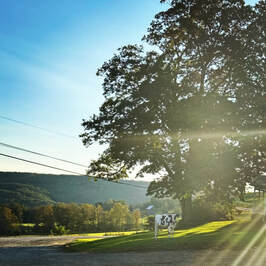 Miranda Neville, Agricultural Resource Specialist, BCCD “I only have 2 horses. I’m not a farm. Do I need a Manure Management Plan?” In an effort to reduce nutrient loads in the Chesapeake Bay, the Department of Environmental Protection (DEP), has been conducting agricultural inspections on any operations that have livestock/production animals, (yes…even a few chickens) over the past several years in all counties within the Chesapeake Bay watershed. DEP requires operations that have livestock, land apply manure, or do any tillage to crop ground to have a Manure Management Plan and/or an Agricultural Erosion and Sediment Plan. Bradford County is included in the Bay watershed. Bradford County is included in the Bay watershed. By this point, the majority of our farms are aware of the visits and planning needs, but those who may not classify themselves as ‘farms’ may not know that they need a Manure Management Plan. 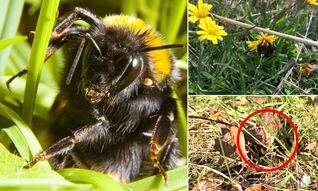 Isaac Walker, BCCD, Ag Resource Specialist As we enter a stretch of warmer weather, one thing is on a lot of people’s minds. Mowing the lawn. I know that I’ve been thinking about it too, as parts of my yard get taller and taller while others stay relatively short. While it may be tempting to get out there and mow on the first day that the temps reach 70 degrees, I’d like to provide you with some information and hope that you consider waiting before firing up the mower early this year.  Cathy Yeakel, BCCD, District manager Spring is Right Around the Corner Earth Day was first celebrated on April 22, 1970, as an environmental awareness day to educate people about pollution and its effects on the environment. Founded by a U.S. Senator from Wisconsin, Gaylord Nelson, Earth Day became a global movement to protect our environment. Since 1970, celebrations have changed from awareness lectures to outdoor events offering education on our natural resource issues and demonstrations. 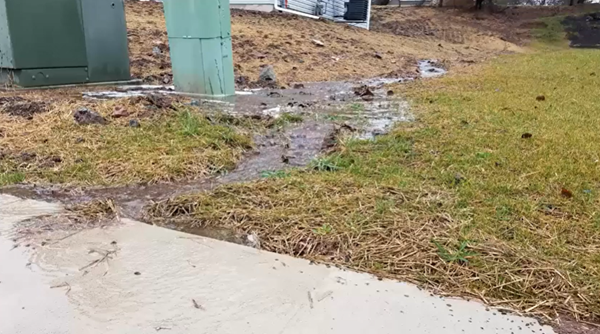 By: Heather McKean; former Penn State Extension educator Have you ever discussed stormwater with your neighbor or wondered how to be a better stormwater neighbor? Neighbor disputes over stormwater are very common. Water does not follow property boundaries and there are often instances where water flows from one property onto another and causes damage. It is important to realize that activities on your own property can adversely affect your neighbor's property. 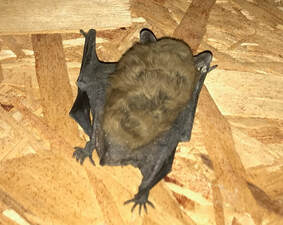 I was reading an article from another paper this morning about rain. It was singing the praises of rain and how we cannot do without it. It was talking about how we don’t want to be caught out in it. It can ruin a good day (if you look at it that way). You don’t want it to rain while you are watching a parade, or having a cookout, or any number of things. But, it pointed out that rain is a good thing. I mean, it is the basis of life! It grows food and shelter and clothing. It prevents fires from getting out of control. (I have heard that at the end of last week, the brush fires started.) Imagine if we had no rain. The landscape would be a boring as the Sahara Desert. And wildlife- if you want to see some wildlife, head for your nearest area of surface water (pond, stream, etc.). There will be wildlife there, I am sure. Rain is a great thing, and places in the west fight over who is going to get that water when it comes down the stream. They don’t have enough to do what they want to do (live, wash, grow crops, water lawns, etc.). We need moisture, but sun always steals the show. After reading the article I was going to write one of my own, expanding on this topic. However, as I thought of all the good things, I started to add up all the bad things about it- floods, erosion, drowning, supports mold growth, rots things, changes streams over time (usually to places we don’t want it to go), shrinks things, and the list goes on. I am sure you can come up with a number of things on your own. I then contemplated that my article should be about all the bad things associated with rain. We have all experienced those things in the last 6 years. Then I thought, how could something so good, also be so bad? Are there other things that way? And my mind started to drift. Is it really all about perspective? 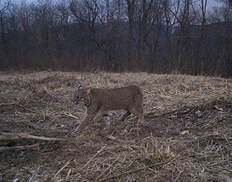 by Ryan Reed A reprint from Forest Fridays, a DCNR publication If you’re an avid outdoors person, chances are that you have heard the sound before. Let’s just say the sound can be very unsettling. This hair-raising, goosebumps-inducing noise will certainly get one’s attention, and can be heard during this period of the late winter season when everything else can seem dead silent. |
AuthorsVarious staff at the Bradford County Conservation District Archives
April 2024
Categories
All
|
